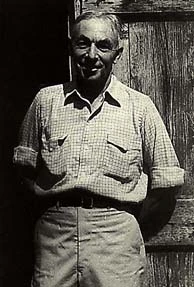 |
|
| Toni Morrison (born 1931) was the first African American woman to win the Nobel Prize. She won the Nobel Prize in 1993 and the Pulitzer Prize for Fiction in 1988. Her birth name is Chloe Wofford. |
Toni Morrison is best known for her novels The Bluest Eye, published in 1970; Song of Solomon, published in 1977; and Beloved published in 1987. Here’s an excerpt from the introduction of her novel Song of Solomon:
I have long despised artists’ chatter about muses — “voices” that speak to them and enable a vision, the source of which they could not otherwise name. I thought of muses as inventions to protect one’s insight, to avoid questions like “Where do your ideas come from?” Or to escape inquiry into the fuzzy area between autobiography and fiction. I regarded the “mystery” of creativity as a shield erected by artists to avoid articulating, analyzing, or even knowing the details of their creative process — for fear it would fade away.
Writing Song of Solomon destroyed all that. I had no access to what I planned to write about until my father died. In the unmanageable sadness that followed, there was none of the sibling wrangling, guilt or missed opportunities, or fights for this or that memento. Each of his four children was convinced that he loved her or him best. He had sacrificed greatly for one, risking his house and his job; he took another to baseball games over whole summers where they lay in the grass listening to a portable radio, talking, evaluating the players on the field. In the company of one, his firstborn, he always beamed and preferred her cooking over everyone else’s, including his wife’s. He carried a letter from me in his coat pocket for years and years, and drove through blinding snow-storms to help me. Most important, he talked to each of us in language cut to our different understandings. He had a flattering view of me as someone interesting, capable, witty, smart, high-spirited. I did not share that view of myself, and wondered why he held it. But it was the death of that girl — the one who lived in his head — that I mourned when he died. Even more than I mourned him, I suffered the loss of the person he thought I was. I think it was because I felt closer to him than to myself that, after his death, I deliberately sought his advice for writing the novel that continued to elude me. “What are the men you have known really like?”
He answered.
What it is called — muse, insight, inspiration, “the dark finger that guides,” “bright angel” — it exists and, in many forms, I have trusted it ever since.
The challenge of Song of Solomon was to manage what was for me a radical shift in imagination from a female locus to a male one. To get out of the house, to de-domesticate the landscape that had so far been the sit of my work. To travel. To fly. In such an overtly, stereotypically male narrative, I thought that straightforward chronology would be more suitable than the kind of play with sequence and time I had employed in my previous novels. A journey, then, with the accomplishment of flight, the triumphant end of a trip through earth, to its surface, on into water, and finally into air. All very saga-like. Old-school heroic, but with other meanings. Opening with the suicidal leap of the insurance agent, ending it with the protagonist’s confrontational soar into danger, was meant to enclose the mystical but problematic one taking by the Solomon of the title.











You must be logged in to post a comment.